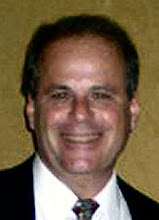 From the Museum's "Never Forget: Visions of the Nazi Camps" online exhibition and the Spungen Family Foundation's Postal Collection:
From the Museum's "Never Forget: Visions of the Nazi Camps" online exhibition and the Spungen Family Foundation's Postal Collection:Compared to later conditions, treatment of prisoners during the first year was relatively humane. A printed announcement from the camp commandant on the back of this December 16, 1940, formular post card stated, "Each prisoner may have a packet weighing one kilogram sent to him by relatives for Christmas, but not as a packet with money order. Permitted: bread, Christmas pastries, winter sausage, tobacco products, toilet articles. Forbidden: enclosures of money, canned jelly, stamps, photographs, letters, and flammable materials such as lighters, matches, etc. For delivery the packet should have the most correct address, including the birthdate and prisoner number. The packet must be sent in the period from December 10, 1940, to January 5, 1941. All incoming packages that do not conform to camp regulations will be confiscated for the benefit of prisoners who receive no packet from home."
Below are partial descriptions of more postal artifacts from Auschwitz on display at the virtual Museum of Family History. All can be found by visiting the exhibition and clicking on the Auschwitz-Birkenau link.
--A February 28, 1942, formular envelope mailed by prisoner number 205 (first transport) to Tarnów. Boxed red censor mark on the back.
--An unmailed post card published by the Auschwitz Museum after World War II shows the camp crematorium in 1943, location of an unsuccessful prisoners' revolt in 1943.
--Enclosed inside this March 11, 1944, prisoner's formular lettersheet was a printed notice to the recipient...
--Despite the ban on Easter parcels for prisoners in 1944, one inmate received this colorful hand-painted Easter card from a relative after it had passed the camp sensor.
--November 23, 1944, insured railway express receipt for a 10-kilogram parcel of food and clothing shipped from Beatrix Wiesner at Prague to prisoner Richard Wiesner at Auschwitz.
--This October 13, 1942, telegram from the Auschwitz camp commandant to Lublin states: "Your husband died today in the Auschwitz concentration camp. Details from the commander of the security police and the SD in the Lublin district."
--On this August 2, 1943, message-and-reply postal card from Zichenau, Franz Zawacki queried the Auschwitz administration about the fate of prisoner Egon Konstanty Zawacki.
--Very few letters or cards addressed to Auschwitz prisoners have survived, for obvious reasons, so the March 27, 1943, postal card from a mother in Warsaw to her daughter at Birkenau is exceptional. The postage fee official mail parcel waybill from the printing facility of the Auschwitz central administration to the Flossenbürg concentration camp administration probably accompanied a shipment of formular stationery for prisoners.
--A March 27, 1943, air mail letter and an April 24, 1943, special delivery letter from a French forced laborer at the Auschwitz West Buchenholz labor camp operated by I.G. Farben to his parents in Meaux, France. Both were censored at Frankfurt.
--The message on this May 31, 1944, prisoner's post card from the Auschwitz-Birkenau death camp to Kolozsvar, Hungary (today Cluj, Romania)….
--This page and the two that follow document the tragedy of Arnold Singer, a German Jew of Luckau whose brother, Walter Singer, had escaped to Sweden and was trying to help Arnold leave Germany and join him.
More such postal artifacts can be found not only within this exhibition for dozens of camps, but also within the two other new exhibitions, "Persecution and Flight: the Nazi Campaign Against the Jews" and "The Jewish Ghetto." Please make a thorough visit to these three Museum exhibitions at your convenience.




No comments:
Post a Comment